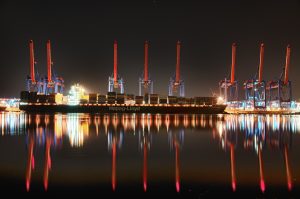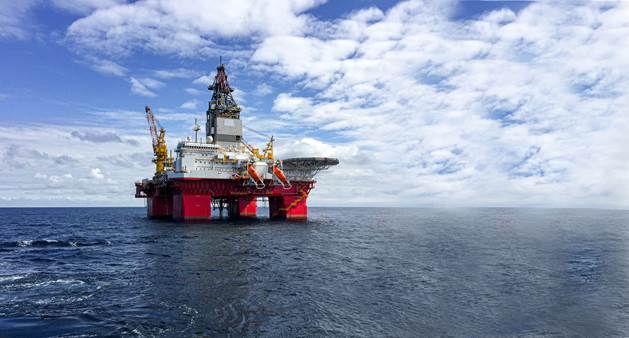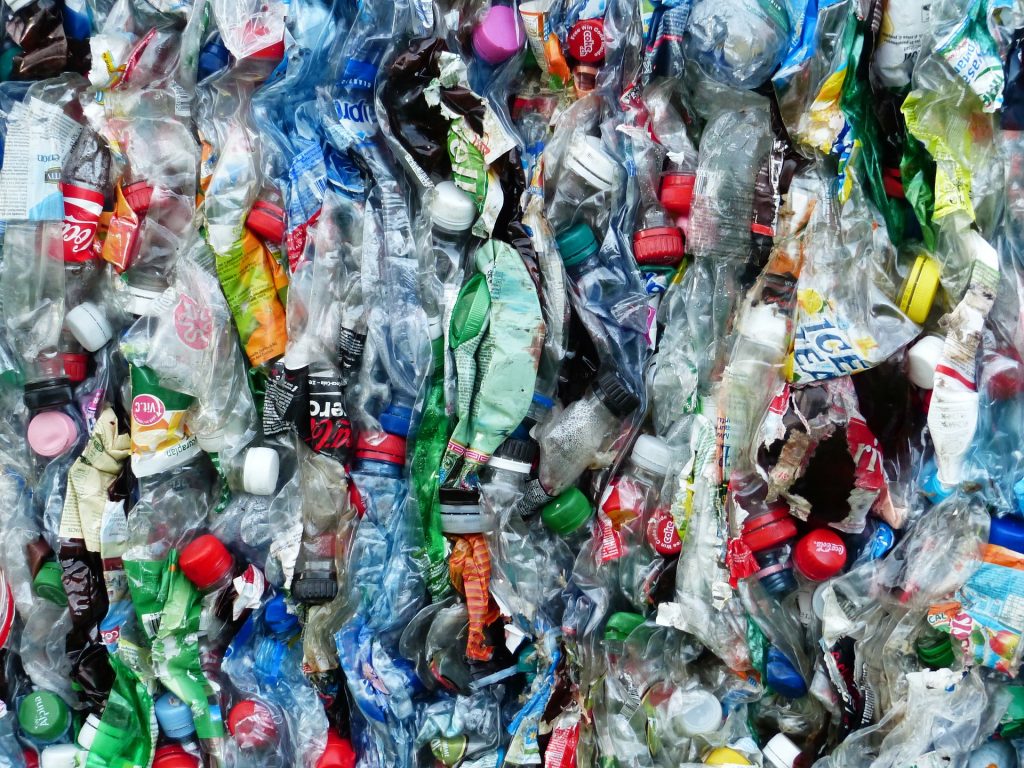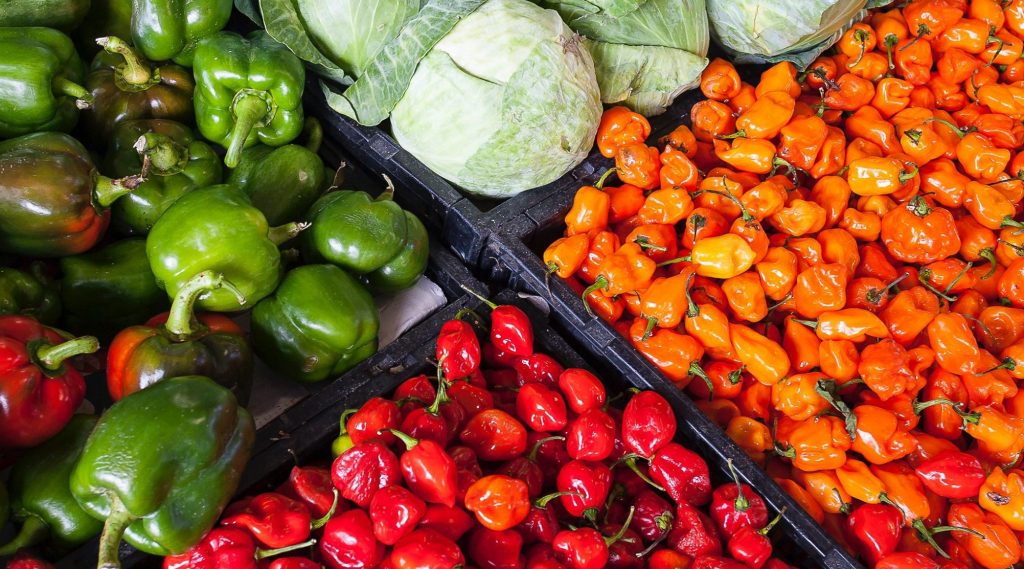“Not too long ago, the Mediterranean was described as ‘NATO’s lake’ — a sleepy backwater in a world dominated by conflict. After the implosion of the Soviet Union, ships of the U.S.-led alliance enjoyed unfettered and uncontested access from Gibraltar to Beirut,” said regional expert Geoffrey Aronson in a July report from the Middle East Institute. “The region’s problems centered upon land-based disputes, Israel’s seemingly intractable conflict with Arab states foremost among them. Who imagined that the 20th-century dispute over Cyprus would morph into a 21st-century zero-sum conflict over access to undersea gas resources — a competition that divides NATO allies and helps to cement close ties between former enemies?”
Mediterranean fields constitute the “largest gas basin ever discovered on Europe‘s doorstep and were first explored by Israel, then Cyprus and Egypt,” wrote Isabel Weiss last year in a report for the Konrad Adenauer Foundation, a German think tank. The U.S. Geological Survey estimates the Nile Delta and Levant Basin (waters of Egypt, Cyprus, Israel, Lebanon and Palestine) contain 122.4 trillion cubic feet of recoverable natural gas, representing 5 percent of global reserves.
The scramble to secure gas deposits involves traditional rivals Greece and Turkey, both NATO members, along with Egypt, Israel, Cyprus and Libya. It is forging unlikely alliances as fraying multilateral ties and brinkmanship threaten to devolve into military confrontation.

Building alliances
“Energy has no borders, unlike politics,” was a statement emphasized multiple times by Egypt’s Minister of Petroleum and Mineral Resources Tarek El Molla and Cesar Abi Khalil, former Lebanese minister of energy, at the Middle East Energy and Geopolitics Forum in June 2019.
In the competition for gas deposits, Egypt’s strength lies in building alliances using a conciliatory, collaborative and shrewd diplomatic approach in contrast to the alienating policies of Erdogan’s Turkey. “Egypt has turned into an increasingly good partner,” explained Stephen Roll, head of the Middle East and Africa research division at the German Institute for International and Security Affairs, to Deutsche Welle.
In January 2019, the energy ministers of Egypt, Cyprus, Greece, Israel, Italy, Jordan and the Palestinian Authority gathered in Cairo to form the Eastern Mediterranean Gas Forum (EMGF).
“At its most ambitious, these plans foresee an OPEC-like natural gas consortium. Along with major plans for new underwater pipelines, especially the EastMed pipeline, such developments could transform regional economic and strategic relations,” according to Hussein Ibish, senior resident scholar at The Arab Gulf States Institute in Washington (AGSIW) think tank, in a July article.
Then in August 2020, Greece, which claims the waters extending south of the Greek islands as an exclusive economic zone (EEZ), signed an accord with Egypt to define the countries’ respective EEZs.
Cyprus also has agreements to send surplus gas from its offshore fields to Egypt and Israel for re-export. In February 2018, Israel announced a $15 billion, 10-year gas deal with Egypt, which Israeli officials hailed as the most significant agreement to emerge since the 1978 Camp David accords.
“This new set of interlocking alliances centered around Greece and Cyprus is primarily aimed at offsetting Turkey’s growing regional power. It may prove to be, in effect, the first major test of Turkey’s potential to act as a regional superpower in the eastern Mediterranean,” said Ibish. Ankara, he explained, appears to have identified controlling most of this resource as an assertion of its growing independence from Washington and NATO, and aims to ensure that it is the big winner.
Increasing economic cooperation between Arab states and Israel is proving indispensable in offsetting Turkish claims. The first step toward regional cooperation was the EMGF. “The EMGF aspires to create a regional gas market and to ensure the security of supply and demand,” said Weiss.
The U.S.-brokered peace deals between Israel and the governments of the U.A.E. and Bahrain is another consolidation of these alliances against would-be regional foes like Turkey and Iran.
Deep-sea rivalry
Turkey is one of the top 10 importers of liquefied natural gas (LNG) at 12.9 billion cubic meters in 2019, according to Statista, an online data portal. Yet it enjoys the longest maritime border in the gas-rich region. Conversely, Egypt recently emerged as a net exporter of LNG thanks to the Eni-developed Zohr field. Egyptian imports fell to zero in 2019, while exports totaled $1.24 billion, a 150 percent year-on-year increase, according to national statistics compiler CAPMAS. Both countries covet natural gas assets that could translate into economic advantages.
In response to the EMGF, Turkey has mobilized in opposition, refusing to recognize the Greek EEZ and maritime agreements supporting it. Supported by Qatar, Turkey has been using the Turkish Republic of Northern Cyprus (TRNC) and Libya’s factional Government of National Accord (GNA) to expand its exploration operations in the Mediterranean.

“On the one hand is the EastMed pipeline project, fortified by a number of bilateral maritime understandings. On the other is a memorandum signed by Turkey and the U.N.-recognized GNA in Libya,” said Aronson. “This latter agreement represents a strategic leapfrog over the EastMed project. It establishes exclusive economic zones (EEZ) for each country that have been widely rejected as inconsistent with international law.”
The Turkish-Libyan pipeline ambitions threaten to upend Egyptian, Greek, Cypriot and Israeli long-term economic interests in energy cooperation.
Harnessing the potential
LNG accounts for about 20 percent of total global energy consumption. Following a period of strong growth, the International Energy Agency (IEA) predicts demand to grow 1.5 percent annually. The prospect of a new source of gas on Europe’s doorstep is strategically attractive for the EU given declining North Sea reserves and the dependence on Russian supply. With its export route via the two LNG terminals in Damietta and Idku, said Weiss, “Egypt may hold the key to the eastern Mediterranean’s gas future.”
In addition to its plans for exporting natural gas, Egypt is working to build demand for hydrocarbon at home. Egypt’s petroleum minister Tarek El Molla last August witnessed the signing of a cooperation agreement between the oil sector and National Service Projects Agency to boost the use of LNG commercial vehicles. In addition, other ministries are cooperating to expedite the conversion of mass transit vehicles to compressed natural gas (CNG), according to a 2019 NGV Global News report. The number of vehicles operating on CNG in Egypt is about 280,000 with 187 supply stations and 72 conversion centers, according to a ministry statement last year.
Plans call for establishing 54 natural gas refueling facilities across 15 governorates along with car-conversion centers, with 350 new stations within six years. At the same time, the minister announced an integrated plan to encourage owners to switch their cars to a natural gas–gasoline system, with a goal of converting 50,000 cars annually.
“There has been much public interest in transferring vehicles to natural gas during the past two years to benefit from its lower cost, higher quality and eco-friendliness as the cleanest of hydrocarbon fuels,” said a ministry spokesman in the report in NGV Global News.
Addressing the cost of switching, El Molla pointed to the Natural Gas Vehicles Co. (CAR GAS) and Egyptian International Gas Technology Co. (GASTEC), which offers no-interest payment plans.
He said CNG conversion costs can be recovered in a short period of time and praised the Small and Medium Enterprises Development Authority for providing financing for the conversion of 34,000 cars at a value of EGP 172 million ($10.5 million) thus far.
Turkey’s gas strategy
Similarly, Turkish industries and households are being positioned to rely less on Russian gas even as Erdogan and Russian President Vladimir Putin talk up ambitious energy ventures, like the recently inaugurated TurkStream pipeline.
Turkey’s first LNG station opened early this year by Shell & Turcas Petrol on the Anatolian Motorway. It is located on the Istanbul-Ankara highway, which receives the highest volumes of international transport traffic, according to a January report by Global Gas Mobility. Turcas Petrol said the facility heralds a new era in Turkish industry, and “is the company’s response to Turkey’s growing demand for alternative energy sources.”
Doğuş Otomotiv CEO Ali Bilaloglu predicted demand for alternative fuel vehicles will increase rapidly. “We expect the number of LNG vehicles to increase to 10 percent of the trucks in our country soon,” he said. “LNG engines are quieter than diesel engines, they reduce carbon dioxide emissions by about 10 percent, particulate emissions are almost completely eliminated.”
Shared goals for success

Greece, a longtime importer of LNG, wants to reduce its dependence on foreign natural gas, ultimately supplying Europe with excess domestic supply. Online portal Energy World estimated Greek LNG imports in 2020 could end up 1 billion cubic meters (bcm) higher than 2019’s total volume of 2.8 bcm.
Meanwhile, a decade ago, Israel relied on Egyptian gas for up to 40 percent of its domestic needs, according to Turkish news outlet TRT World. With the discovery and exploitation of the Leviathan and Tamar fields, Israel became a net exporter of natural gas, sending it to Egypt for liqueficiation.
“Interdependence fosters stable alliances. The Cairo-based EMGF will be open for other Eastern Mediterranean countries provided they share the forum’s interests and objectives, and are strategically supported by the EU and United States,” explained Weiss. “Institutionalized cooperation could be crucial if eastern Mediterranean gas is to be competitive.”
“Two conclusions can be drawn from the EMGF. Firstly, the EastMed countries understand that mutual interdependence is the path to economic development and peace. Secondly, the new diplomatic dynamic should be less about political differences and more about mutual economic interests of the EastMed countries,” she explained.







